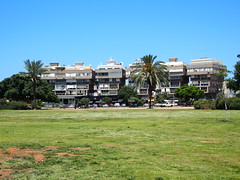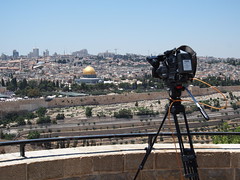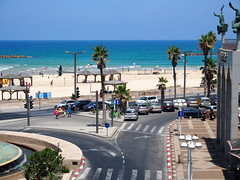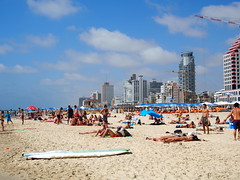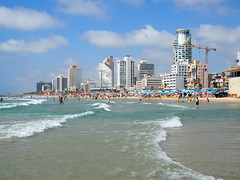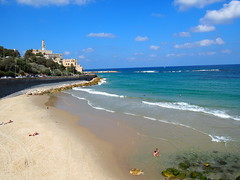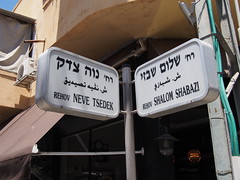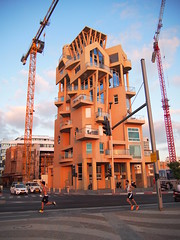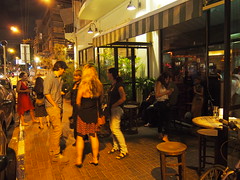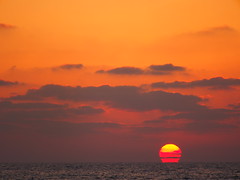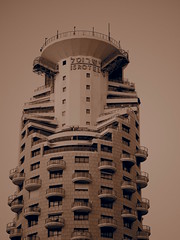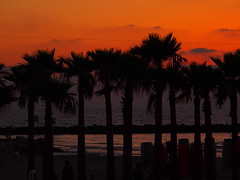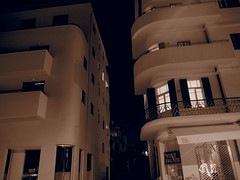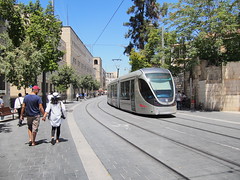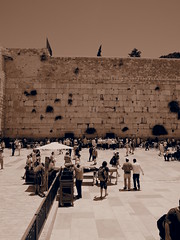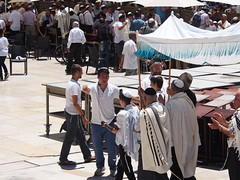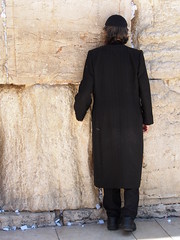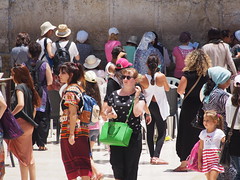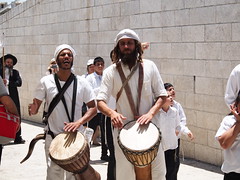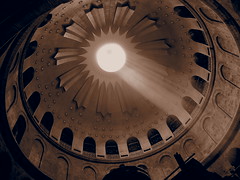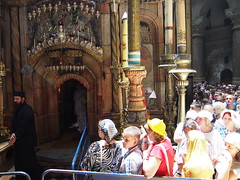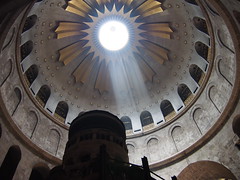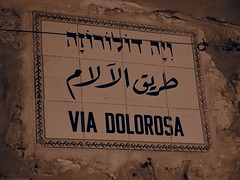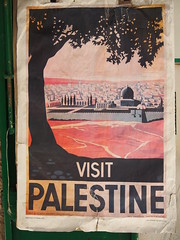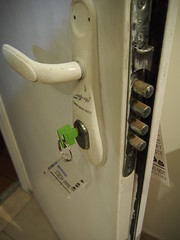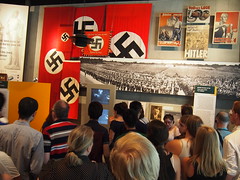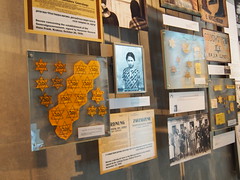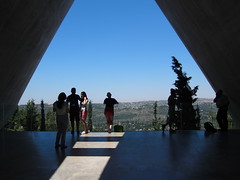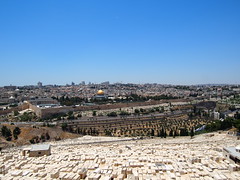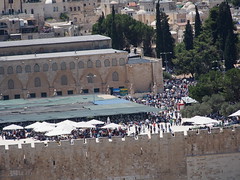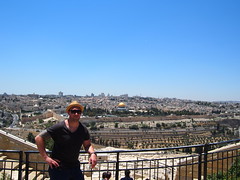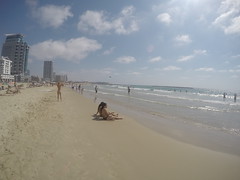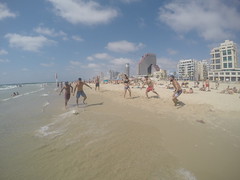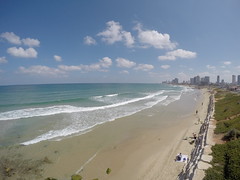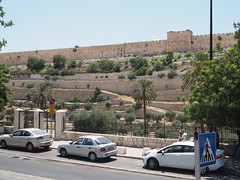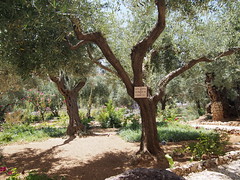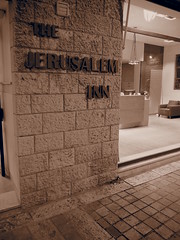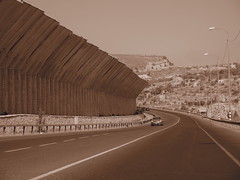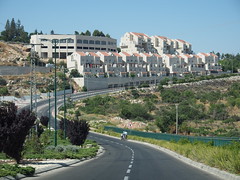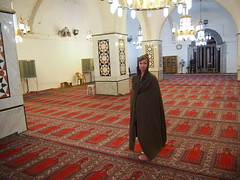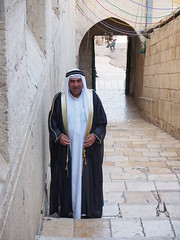ISRAEL
It has been locked in conflict with the Palestinians and its Arab neighbours over ownership of land considered holy by Jews, Christians and Muslims since its creation in 1948.
The division of the former British Mandate of Palestine and the creation of the State of Israel in the years after the end of World War II was the culmination of the Zionist movement, whose aim was a homeland for Jews hitherto scattered all over the world.
After the Nazi Holocaust, pressure grew for the international recognition of a Jewish state, and in 1948 Israel declared its independence following a UN vote to partition Palestine.
Much of the history of the area since that time has been one of conflict between Israel on one side and Palestinians – represented by the Palestine Liberation Organisation – and Israel’s Arab neighbours, on the other. Hundreds of thousands of Palestinian Arabs were displaced in the fighting in 1948, during which Israel’s Arab neighbours came to the aid of the Arab Higher Committee in Palestine. Israel lost one percent of its population in the fighting, which ended in a series of uneasy armistices.
Israel has developed from an agrarian state run along collectivist lines into a hi-tech economy in the past 60 years. It has absorbed Jewish immigrants from Europe, the rest of the Middle East, North America and, most recently, the former Soviet Union and Ethiopia along the way.
Its political life has nonetheless been dominated by the conflict with its Arab neighbours, including full-scale regional wars in 1948, 1967 and 1973, and many smaller-scale conflicts including the 1956 invasion of Egypt and the Lebanon wars of 1982 and 2006.
Relations with the Palestinians have been the key factor in foreign and security policy. The Palestinians in the West Bank and eastern Jerusalem have lived under Israeli occupation since 1967. The settlements that Israel has built in the West Bank are home to nearly 500,000 people and are deemed to be illegal under international law, although Israel disputes this.
Israel evacuated its settlers from the Gaza Strip in 2005 and withdrew its forces, ending almost four decades of military occupation. However, after the militant Islamic group Hamas seized control of Gaza in June 2007, Israel intensified its economic blockade of the Strip. In 2008 and in 2014 it launched major military assaults on Gaza to halt cross-border rocket attacks.
In 1979 Egypt and Israel signed a peace agreement, but it wasn’t until the early 1990s, after years of an uprising known as the intifada, that a peace process began with the Palestinians. Despite the handover of Gaza and parts of the West Bank to Palestinian control, a final agreement has yet to be reached.
The main stumbling blocks include the status of Jerusalem, and the fate of Palestinian refugees and their descendants and Jewish settlements.
PALESTINE
Efforts to create a Palestinian state on the West Bank of the River Jordan and Gaza on the Mediterranean coast have been frustrated by the continuing conflict with Israel and disputes over the status of diaspora Palestinians.
The war that followed Israel’s declaration of independence in 1948 saw the former British mandate of Palestine partitioned between Israel, Trans-Jordan and Egypt.
Hundreds of thousands of Palestinians fled or were forced out of their native land during the war, in what they call the “Nakba” or “Catastrophe”.
The demand of these refugees and their descendants to return to their former homes remains one of the most fiercely debated aspects of the dispute with Israel.
The Palestinian national movement gradually regrouped in the West Bank and Gaza, run respectively by Jordan and Egypt, and in refugee camps in neighbouring Arab states.
The Palestine Liberation Organisation (PLO) emerged as its leading umbrella group shortly before the Six-Day War of 1967, during which Israel captured the West Bank, Gaza and East Jerusalem, and conducted a protracted campaign of violence against Israel.
The PLO under Yasser Arafat gradually won international recognition as the representative of the Palestinian people, culminating in the Oslo Accords with Israel in 1993.
These accords established a Palestinian National Authority (PNA – also referred to as the Palestinian Authority, or PA) as an interim body to run parts of Gaza and the West Bank (but not East Jerusalem) pending an agreed solution to the conflict.
The PNA functions as an agency of the PLO, which represents Palestinians at international bodies. It is led by a directly-elected president, who appoints a prime minister and government which must have the support of the elected Legislative Council.
Its civilian and security writ runs in urban areas (Area A) under the Oslo Accords, with civilian but not security control over rural areas (Area B).
The Israeli occupation of the West Bank, with its continuing settlement building and military checkpoints, and Palestinian attacks, have slowed progress towards a final agreement and led many on both sides to dispute the worth of the Accords.
Israel retains full control over bypass roads, settlements and the Jordan Valley, and makes incursions into urban areas against armed groups.
In 2005, Israel completed the withdrawal of all its troops and settlers from the Gaza Strip but it retains control of the airspace, seafront and access – including deliveries of food and other goods – apart from the crossing with Egypt.
The Islamist Hamas movement, which runs Gaza, explicitly rejects Oslo and its charter calls for Israel’s “nullification”.
The Fatah faction of the PLO ran the PNA until 2006, when Hamas won a majority in Legislative Council elections.
Uneasy co-existence between PNA President Mahmoud Abbas and a Hamas-led government led to violence between armed wings of Fatah and Hamas, culminating in Hamas seizing power in Gaza in June 2007 and President Abbas dismissing the government.
The two PNA areas have since been run by the separate factions – the West Bank by Fatah, and Gaza by Hamas. Egyptian-mediated efforts to bring the two factions together met with little success.
Local elections on the West Bank in October 2012 undermined Fatah’s position, as it won only two-fifths of the seats contested on a turnout of 55%, with independents and Fatah dissidents making gains. Hamas boycotted the poll, and allowed no elections at all in Gaza.
In 2014 Fatah and Hamas announced a reconciliation deal and formed a unity government, in an attempt to end seven years of sometimes violent division.
The PNA made a symbolic bid for recognition at the UN as the “State of Palestine” in 2011, mainly in an effort to highlight the lack of movement in relations with Israel.
This failed to gain the required support, but UNESCO – the UN cultural and educational agency – did admit the “State of Palestine” as a member in October.
In November 2012, the UN General Assembly voted to upgrade the status of the Palestinians to that of a “non-member observer state” – a move that allows them to take part in General Assembly debates and improves their chances of joining UN agencies.
More information here:
http://www.goisrael.com/Tourism_Eng/Pages/home.aspx
